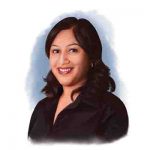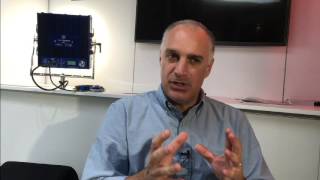Using a Canon 5D, a rising star in the UAE production industry is on a mission to change the concept of filmmaking in the region. His journey begins in Yemen Yemen was called Arabia Felix by the Romans who were impressed with its wealth and prosperity. Its position on the ancient spice routes of Africa, […]

Using a Canon 5D, a rising star in the UAE production industry is on a mission to change the concept of filmmaking in the region. His journey begins in Yemen
Yemen was called Arabia Felix by the Romans who were impressed with its wealth and prosperity. Its position on the ancient spice routes of Africa, the Middle East and Asia reputed the distinct country as a rich and fertile land.
Today, media images show persistent tension between the north and the south of Yemen after years of border skirmishes culminated in a short civil war in 1994.
Another side exists to the largely unified country however, and it is these images that have been captured in a documentary film series of the same Latin name, through the lens of a Canon 5D by UAE national, Ali Mansour Al Ali.
Al Ali also happens to be owner of Dubai-based production company, Arabian Studios, an international business with offices in Paris, London, Milan and Beirut. And he has lofty ambitions; to change the concept of filmmakers and production companies in the emirates, who at the moment are considered as facilitators.
Arabia Felix is the catalyst. Yemen is the first documentary film in this series of episodes that aim to capture real people living in real situations in a part of the world, which Al Ali says, is largely misunderstood.
There is a beauty and secret behind Arabia. Yemen is just a normal world with peaceful people. Yes, there are issues but this is away from most peoples lives. There are no worries. There is an army present, but people dont carry guns on the street as the media portrays.
This was a unique trip and one that Al Ali describes as a dream for a filmmaker.
Filming began in late 2010 and continued for three months. The journey through Yemen is profiled through seven episodes of 30 minutes. It was a project that Al Ali recalls occurred purely by accident.
We were going to shoot a feature film initially and that is why we had a feature film crew and so many people with us.
A crew of 200-strong to be exact. Fortunately, the project had the support of President Saleh who had held office since 1978 and provided what Al Ali can only describe as a full-fledged army to protect him, technicians, technical crew, the art department and the rest of the crew.
We requested them [army] because we were travelling with an international crew and they were outside of the insurance limits because Yemen is perceived to be a risky location. You would think that the crew would be reluctant to go, but many of the crew was willing to work for free. They just wanted to have the experience of working in the country.
Before filming began, the crew received a one-week briefing session from the Director of Photography (DoP). The objective was to gather documentary style content with Canon 5D cameras.
Many cameras were tested, but the 5D offered lower costs and afforded easier transportation. It also gave us the feel of a raw film. Getting the equipment into the country took a lot of organising but any logistical difficulties were eased thanks to government support, says Ali.
Following the DoPs first scouting session in the country it was evident that the locations and the people would make for interesting and often surprising shots.
One day during filming, we met a man aged 113 years walking down the street. He showed us his whereabouts and how he lived. The stories he told us were fascinating. The crew researched areas well and the film shows the peace of deserted streets and then plunges the viewer into the noise and chaos of Yemens overcrowded markets and walkways.
The Canon 5D camera is ideal for conveying to the audience Yemens changing environment. The rawness of the finished film reflects the economic difficulties that have sparked unrest and the uprisings that forced President Saleh to step down in November 2011. Filmed scenes show the poverty endured by the countrys inhabitants as they find ways to exist in the poorest country in the Middle East and at the same time, shots capture the living that is made by many from coffee beans; beans that produce the most expensive coffee in the world. Yemens burgeoning tourism industry and the economic boost the country has received since the government declared a ceasefire with the northern rebels in February 2010 is also clearly portrayed.
The filmmaker is unable to disclose much more detail about the documentary. Selected episodes will be screened at a number of film festivals in 2012, the locations of which are yet to be finalised. Al Ali confirms he will be attending Cannes later in the year however.
Season two for Arabia Felix sees Al Ali returning to his home, the UAE. It is an opportunity, as with Yemen, to tell the true story behind the media myth, he says.
People think its only fuel and petrol in the UAE, but there is a bigger picture. People from Dubai are actually traders steeped in history. I love this project because it is about real people.
Shooting is scheduled to begin in three months time and eventually the entire Arab world will be covered under the Arabia Felix umbrella.














































































